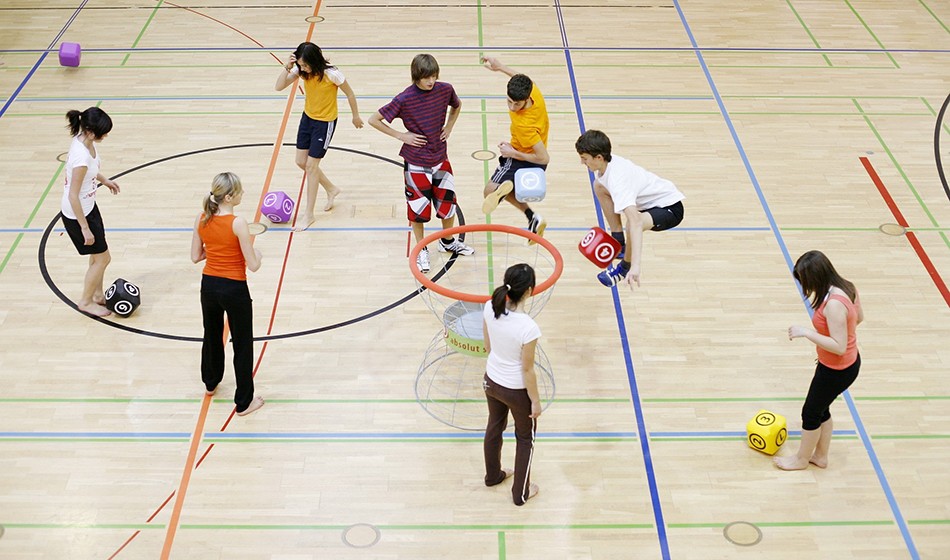The Significance of Teamwork and Collaboration in Team Sports
In this comprehensive exploration, we delve into the multifaceted importance of teamwork and collaboration in team sports .

Team sports are more than just games; they are a microcosm of life itself. These athletic endeavors teach participants valuable life lessons that extend far beyond the boundaries of the playing field. At the heart of these lessons is the significance of teamwork and collaboration. In this comprehensive exploration, we delve into the multifaceted importance of teamwork and collaboration in team sports, highlighting how these qualities contribute to individual growth, group success, and the broader community.
Building Trust and Cohesion
Team sports serve as a fertile ground for building trust and cohesion among team members. Trust is the foundation of any successful team, and it is cultivated through shared experiences, consistent communication, and mutual support. When athletes trust their teammates, they can work together more effectively, taking calculated risks and making split-second decisions with confidence.
Cohesion, on the other hand, is the sense of unity and togetherness within a team. It goes beyond merely trusting each other; it involves understanding, accepting, and valuing one another's strengths and weaknesses. Team sports force individuals to adapt to different personalities and playing styles, fostering a sense of belonging and a shared purpose that extends beyond the field.
Learning to Manage Differences
Team sports are a melting pot of diverse talents, backgrounds, and personalities. Learning to manage these differences is an essential life skill, and it is particularly relevant in today's globalized world. In a team, individuals must collaborate with people who have contrasting viewpoints and approaches. This exposure helps athletes develop tolerance, patience, and adaptability.
Moreover, understanding and harnessing these differences can lead to innovative strategies on the field. For instance, a soccer team may have players from various countries, each with a unique style of play. By combining these styles, the team can develop a distinctive and effective approach that confounds opponents.
Enhancing Communication Skills
Clear and effective communication is the cornerstone of successful teamwork in sports. Athletes must communicate constantly during a game, whether through verbal cues, body language, or nonverbal signals. This level of communication fosters skills such as active listening, quick decision-making, and the ability to convey complex ideas succinctly.
The development of these communication skills in sports carries over into everyday life. Individuals who have honed their ability to express themselves clearly and interpret the communication of others are better equipped to succeed in their careers and personal relationships.
Accountability and Responsibility
In team sports, every player has a role to fulfill, and their performance directly affects the team's success. This sense of responsibility teaches athletes the importance of accountability. They learn that their actions, both on and off the field, have consequences not only for themselves but for the entire team. This awareness instills a strong work ethic and a commitment to excellence.
Moreover, the concept of shared responsibility promotes a culture of support and cooperation. Teammates encourage each other to meet their obligations, whether it's attending practice sessions, maintaining fitness, or contributing to team strategies. This shared sense of responsibility is a powerful motivator that helps teams overcome challenges and reach their goals.
Resilience and Adaptability
Team sports are rife with ups and downs, victories, and defeats. These experiences build resilience in athletes. They learn to bounce back from setbacks, maintain a positive attitude, and persevere through adversity. This resilience is a valuable asset in life, helping individuals navigate the inevitable challenges they encounter in their personal and professional endeavors.
Additionally, team sports teach adaptability. Games can change in an instant, and successful teams are those that can adjust their strategies on the fly. Athletes learn to be flexible and open to new approaches, which is a critical skill in today's rapidly changing world.
Goal Setting and Achievement
Team sports are inherently goal-oriented. Whether it's winning a championship, improving performance, or executing a particular play, athletes set and work toward specific objectives. This experience of setting, pursuing, and achieving goals is invaluable in all aspects of life.
Athletes learn the importance of setting realistic goals, breaking them down into manageable steps, and measuring progress along the way. These goal-setting skills are directly transferable to education, careers, and personal aspirations. Moreover, the taste of success in sports can instill a lifelong commitment to pursuing and achieving one's dreams.
Time Management and Discipline
Balancing practice, games, fitness routines, and other commitments demands effective time management. Athletes must learn to prioritize their responsibilities and allocate their time wisely to excel both on and off the field. This discipline extends to other areas of life, helping individuals excel in academics, careers, and personal pursuits.
Furthermore, the structured nature of team sports enforces discipline. Players must adhere to rules, follow the coach's instructions, and respect the authority of team leaders. This respect for authority and adherence to rules are qualities that benefit individuals in their interactions with employers, colleagues, and the broader community.
Experiencing the Power of Unity
Team sports often involve moments where the collective effort of the team achieves something greater than the sum of individual talents. These moments highlight the power of unity, where individuals come together to achieve a common goal. Whether it's a last-minute goal in soccer, a game-winning play in basketball, or a perfectly executed relay in track and field, these instances demonstrate the extraordinary results that collaboration can yield.
Experiencing such moments can be life-changing. Athletes carry this understanding of the potential of unity with them, applying it to their workplaces, communities, and families. They learn that when people work together cohesively, they can overcome seemingly insurmountable challenges and achieve remarkable success.
Promoting Health and Well-being
Participating in team sports contributes to physical health and overall well-being. Regular exercise improves cardiovascular health, strengthens muscles and bones, and enhances flexibility and agility. Team sports also promote mental health by reducing stress, anxiety, and depression through the release of endorphins and the social support network provided by teammates.
These physical and mental health benefits are significant not only for athletes but for society as a whole. Healthier individuals are more productive in their personal and professional lives, reducing the burden on healthcare systems and increasing overall well-being in communities.
Fostering a Sense of Community
Team sports create a sense of community that extends beyond the team itself. Families, friends, and local communities rally behind their teams, fostering a strong sense of belonging and pride. Sporting events bring people together, transcending differences and promoting unity.
This sense of community can have a ripple effect, strengthening social bonds and encouraging people to get involved in their communities. Athletes often become role models and mentors, inspiring the next generation to participate in sports and become active members of their communities.
The significance of teamwork and collaboration in team sports cannot be overstated. These values are at the core of what makes team sports so much more than games. They provide a platform for individuals to grow personally, develop essential life skills, and contribute positively to their communities. Through trust, communication, resilience, and unity, athletes learn the profound impact of working together towards a common goal. The lessons learned on the playing field extend far beyond the boundaries of the game, shaping individuals into better, more well-rounded, and more compassionate human beings. Team sports, in essence, are a powerful catalyst for personal and societal growth, teaching us that when we work together, we can achieve greatness.
What's Your Reaction?

















